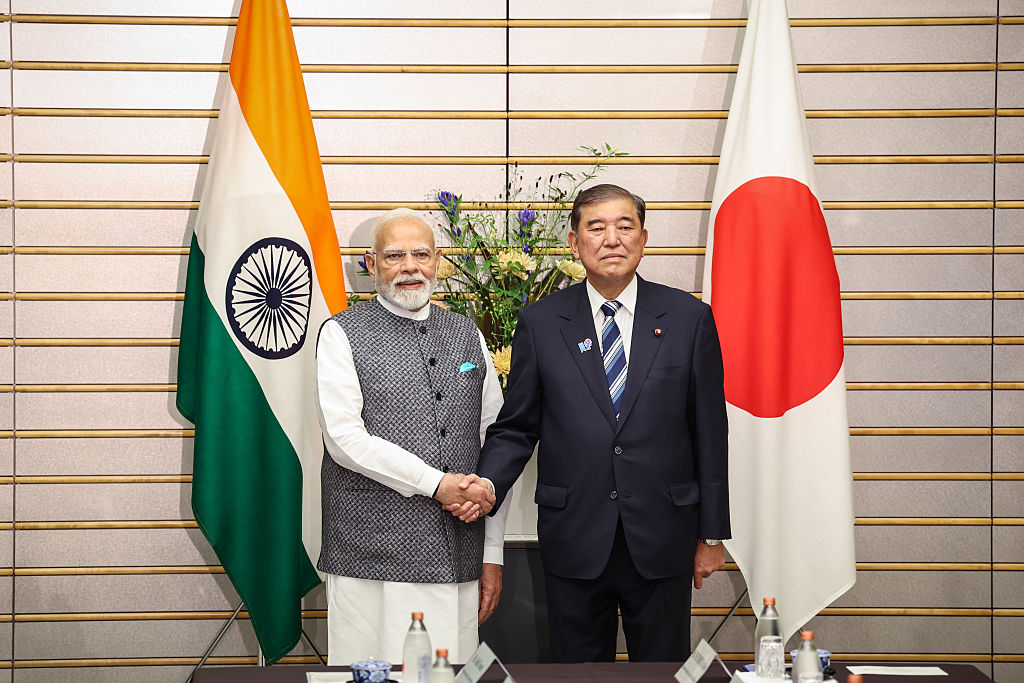India and Japan on Friday elevated their strategic partnership with the adoption of a Joint Declaration on Security Cooperation, marking a new phase in bilateral ties aimed at advancing peace, stability and prosperity in the Indo-Pacific and beyond.
The declaration was adopted in recognition of the evolving strategic priorities of both nations and their growing role in ensuring a free, open, and rules-based international order. It underlined the commitment of New Delhi and Tokyo to deepen practical cooperation in defense, technology, maritime security and counter-terrorism, while also pledging closer coordination in multilateral platforms.
In line with the vision of the India-Japan Special Strategic and Global Partnership, the declaration emphasised the complementary strengths of the two nations in resource endowments and technological capacities, and reaffirmed their determination to strengthen economic dynamism alongside national security.
The two countries agreed to enhance interoperability between their armed forces, expand bilateral and multilateral military exercises, and explore tri-service cooperation for humanitarian assistance and disaster relief in the Indo-Pacific. Special focus will also be given to joint efforts in cyber defense, counter-terrorism, peacekeeping, and protection against emerging security risks including chemical and biological threats.
Maritime security emerged as another key pillar of cooperation, with India and Japan set to increase naval and coast guard collaboration through more frequent port calls, real-time information-sharing via regional mechanisms such as the Information Fusion Centre–Indian Ocean Region, and coordinated action against piracy and other transnational crimes at sea. Both sides also reaffirmed their intention to work together in providing maritime law enforcement assistance to third countries in the region.
The declaration further envisages technological and industrial collaboration across critical sectors. India’s DRDO and Japan’s Acquisition, Technology and Logistics Agency will expand cooperation in defense R&D, while both governments will facilitate co-development and co-production of equipment and technology. Efforts will also be made to strengthen supply chain resilience, explore cooperation in military medicine and health security, and promote joint ventures in critical minerals and advanced technologies.
Recognising the need to address new and emerging challenges, India and Japan committed to joint work in fields such as artificial intelligence, robotics, quantum computing, semiconductors, and cybersecurity. Cooperation in the space domain will also be deepened, covering navigation, earth observation, and space situational awareness including monitoring of space debris.
At the regional and global level, the two sides pledged to uphold ASEAN centrality, advance their respective visions of a Free and Open Indo-Pacific, and contribute to sustainable and quality infrastructure investment. They also reiterated their opposition to unilateral attempts to alter the status quo by force, while supporting peaceful settlement of disputes in accordance with international law.
On global governance, India and Japan renewed their call for United Nations Security Council reform, supporting each other’s candidature for permanent membership. They reaffirmed their commitment to total nuclear disarmament, countering terrorism in all forms, and advancing negotiations on a verifiable Fissile Material Cut-off Treaty. Japan also reiterated its support for India’s membership of the Nuclear Suppliers Group.
The declaration supplements existing institutional frameworks, including the 2+2 ministerial dialogue, National Security Adviser-level consultations, coast guard cooperation, and defense industry forums. It also envisions greater engagement between think-tanks of both countries to widen strategic understanding and develop new avenues of partnership.










